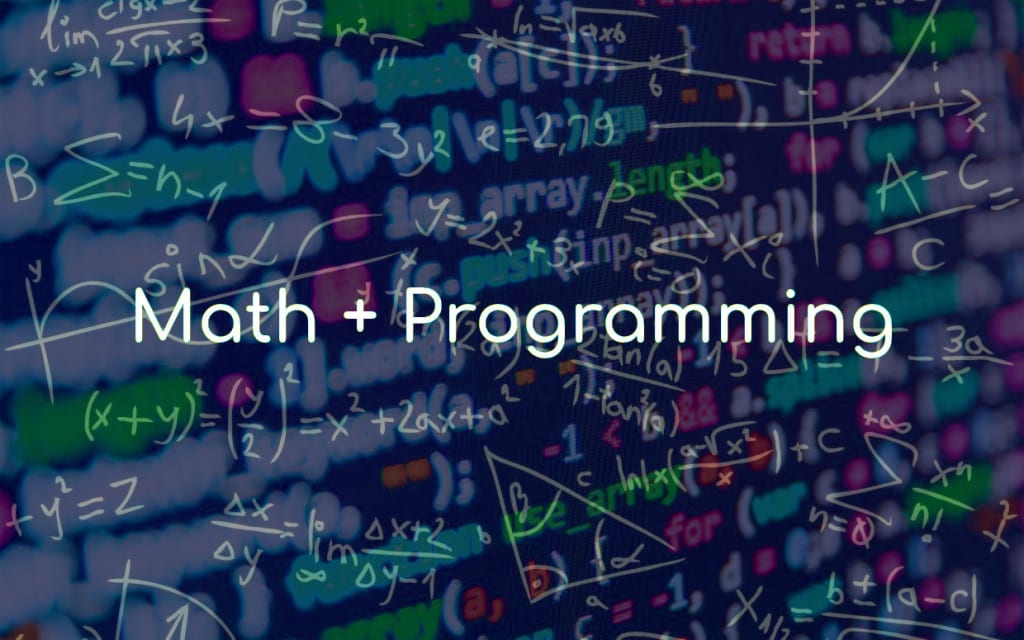
Whist it’s true in the former half, it doesn’t necessarily lead to the conclusion in the latter. A vast number of audience has now got bored of, thus developed an immune system to the so-called stories of "billionaires are dropouts, thus there’s no need to attend colleges". Given that, math prejudices still stir them up.
There’s no doubt that we ourselves have had too much of math: from elementary to advanced levels, from derivative calculus to formulas written in unknown languages. For the most parts, we never come across such things after graduation.
That being said, we live in a world where mathematics rules pretty much everything, at the most elementary level.
Still, no formula is capable of getting you a girlfriend, nor tackling a thorny problem earns you tons of money. (In fact, there are math problems that grant you all bitcoin in the world upon grappling with. A few others earns you $ 1 million).
The problem lies in math being the foundation and among the most abstruse things whilst life is the most comprehensible to human knowledge. Were your life a completed game, math would be the code behind it. When you're in the game, you are incapable of interpreting the code’s meaning nor using the in-game metrics to work out its implicit values.
We don't do it so that we know how to solve math. In a similar stake, we don't exercise so that we know how to exercise. Who on Earth would exercise merely to know how? The goal of doing math is to train one’s thinking skills (for ordinary ones), as well as doing exercise is to metabolize the body. When such questions as, "Why should I do math? Will it earn me a fortune?” prompt in one’s mind, there is little likelihood you might earn a fortune.
Since mathematics is the root of all problems in life, you might be flooded with money upon grappling with "steps to become the world’s richest person", or get a girlfriend by combating the "Tinder 101" problem.
Shall I tackle 1 of these 2 to illustrate? Then, I’m hereby addressing "Steps to becoming the world’s richest person".
One of the key principles in mathematics (as well as programming) is: Break down the problem.
Take a junior high school problem as an example: For quantities a and b, given the sum S = a + b = -3 and the product P = ab = -4, find a and b.
1. Break it down:
- Firstly, define what form of mathematical problem it is. Does it require you to solve the equation? Yes. Of which degree is it? It’s a linear equation. What form is this? Find two numbers given their sum and product. Be as specific as possible. Only then can we find:
- A solution. Still, keep breaking it down. Once the problem has been identified, working towards the solution becomes a piece of cake. Think of how it can be solved: finding common factors, using derivatives, theorems, the necessity and sufficiency, etc.
- Split the problem: not all problems are this simple. Some math problems consist of various parts or take you several steps to tackle. It’s crucial to examine when a mathematical form should be used at certain stages.
Assuming you are incapable of splitting, upon encountering complex problems (not difficult), you will easily be suffocated, yelling "screw it".
2. The second most pivotal thing in solving math problems (as well as programming): Conduct trial. If it’s correct, come to conclusion. Still, what if it’s not?
This applies partially or entirely to the process. Correct? Nice. Errors? Approach it again. Still, what if there’s something wrong while you were combating? You might correctly tackle step 1 and 2, yet commit error during the last step. Thus, at that point, there should be a plan to adopt a different approach.
3. Abstraction: To be exceptionally capable, you need to solve a math problem as if you weren’t.
Don’t think you are grappling with mathematics, instead, focus on data and express in mathematical language alone.
Then, you will find yourself in the world of mathematics with the rules of mathematics reasoning instead of "feeling bewildering since it juxtaposes the outside world". upon diving into it, you will be capable of defining what the foundation is, and what needs reexamination.
To demonstrate, you then get to know what is redundant / crucial, granted the full rights to accept the Euclidean Axioms regardlessly, or to prove the right triangle by applying Pythagoras theorem.
Flash back to the “how to become the world’s richest person” problem. Let’s do the same to it. Break it down to see what the root cause is, with which what approach should be adopted, and determine what to do at certain steps. The key factors are abstraction and immerse yourself in the context.
To put Monopoly into perspective, you can easily become the richest person since there exist few variables, limited rules and approaches. In the real world, things are more sophisticated considering both quality and quantity, not to mention that they are ever-changing. In a like manner, it posed less difficulties becoming the richest person of the ancient times than in the contemporary world, much less demanding than in the modern era.
Abstraction explains why you are jailed upon landing on “Go to Jail”, as well as why one got imprisoned as soon as the monarch desired in ancient times. In the modern era, imprisonment has got far more complicated. You accept it effortlessly without any hesitation. Without abstraction, you will ponder superficial questions, struggling to find a way out. Whilst playing Monopoly, asking of why one gets jailed upon landing on “Go to Jail” is so absurd that might get him to be kicked.
The aforementioned billionaire puzzle can’t possibly be tackled for there exist a vast number of variables. So far, there haven’t existed any machines or exceptional intellects capable of handling such puzzle.
So far, AI has only been capable of calculating the winning odds in such games as chess and Go, thus is helpless in multivariable games as Dota (current Dota AI operates by imitating pro players instead of calculating).
Still, I have a much simpler way: Engaged to the daughter of the world’s richest person.
Whether being tackled or not, it still is a problem. Not every math problem has an approach, nor does it has an answer. Thus, accept errors as a fundamental part of complex problems, as well as errors in life problems.
To put it into perspective, mathematical thinking is worthwhile not only in daily life, but also in content writing, programming and debate.
Locating the inexperienced is a piece of cake: they talk of great things. Masters acknowledge human power, time and knowledge are limited. Thus, talking of humanity, economy and the universe during a conversation is pointless since it creates no value. .
You ALWAYS have to break it down into smallest pieces possible. To demonstrate:
Science? Extremely broad.
Math? Still fairly broad.
Mathematical thinking in practice? Practical albeit strainful.
This way, exercise is not about remembering how. In a like manner, doing maths is also not to remember how you grapple, rather, we are practicing mathematical thinking in every moment of life.
Still, our lives are not flooded with math problems, rather, it is a highly sophisticated problem involving small juxtapositions. Break it down and tackle it little by little. Still, don’t forget to integrate small things.
Remember, be skeptical of those who say they are capable of tackling your problems. Rather, shouldn’t you ponder if they have dealt with their own problems, should you?
Also, be patient. Don't rush to the last page to see the results, since happiness lies in...
About the Creator
Pious
All the money in the world can not buy your health!






Comments
There are no comments for this story
Be the first to respond and start the conversation.